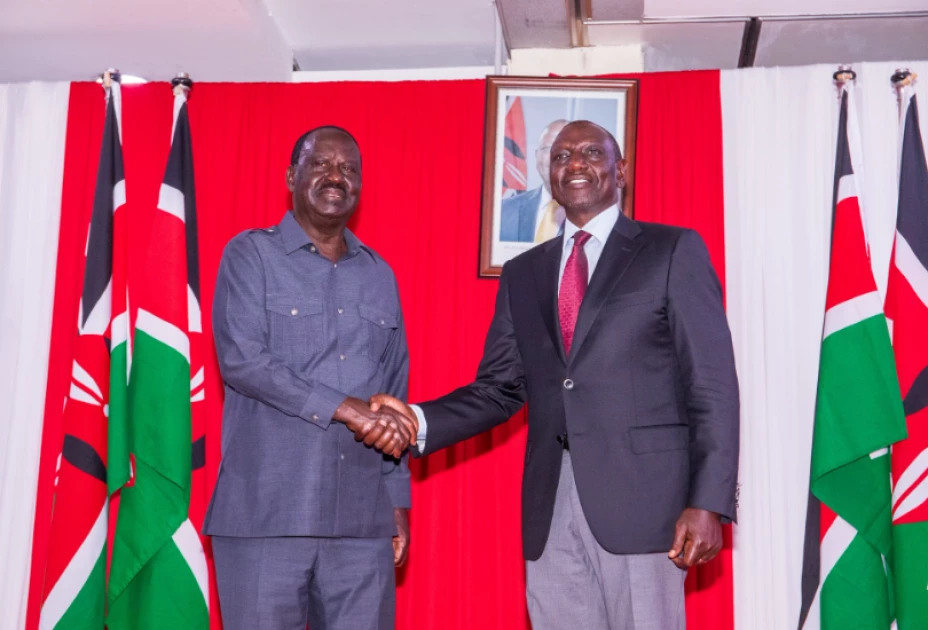Inside Ruto-Raila power agreement, and what it means for Kenya

Former Prime Minister Raila Odinga shakes hands with President William Ruto after the two signed a coooperation agreement at KICC on March 7, 2025. PHOTO | COURTESY

Audio By Vocalize
President William Ruto and former Prime Minister Raila Odinga
have officially signed a working agreement following weeks of consultations
countrywide on the political deal.
The event, held at KICC in Nairobi on Friday, marked a
historic signing when both leaders put pen to paper to seal the Memorandum of
Understanding (MoU) that will chart the country's way forward.
Before signing the document, Orange Democratic Movement
(ODM) Secretary General Edwin Sifuna and his United Democratic Alliance (UDA)
counterpart Hassan Omar read out the issues that will be tackled in the
agreement.
The first issue was the full implementation of the National
Dialogue Committee (NADCO) report that proposed key reforms within the country.
The opposition has been on a clarion call for the government
to implement the report, citing that 90 per cent of Kenyans' issues would be
addressed.
The report emanated as a result of protests following the 2022
General Election after Raila claimed the elections were rigged.
This took the intervention of former Nigerian President
Olusegun Obasanjo to bring both Raila and Ruto to the negotiation table.
This birthed a bipartisan team – the NADCO - that led to the
formation of the report that sought to address the cost of living, youth
employment and a framework to implement the two-thirds gender rule.
The second and third issues involve inclusivity for all
minority groups and strengthening devolution to improve services on a local level.
The two leaders will also address promotion and protection of
youths' lives by empowering sectors such as technology, blue economy,
manufacturing and mining to create employment opportunities.
The duo promised to provide leadership and maintain integrity
within the broad-based government to provide better services.
Another issue was for the National Police Service (NPS) to
respect Kenyans' rights to protest and update their methods of handling
demonstrators that are exercising their Constitutional rights.
The national debt was also a key concern in the agreement,
with both parties agreeing that a national audit must be carried out to
determine the country's status.
Further, accountability measures would be enhanced to assess
how funds are used.
Another concern was the fight against corruption whereby both
leaders will enhance the capacity of institutions that enforce accountability
such as the Auditor General and the Controller of Budget.
The ninth issue involved preventing the wastage of government
resources to promote efficiency.
The final matter was the protection and promotion of the
sovereignty of the Constitution to protect human rights, maintain order and
prevent abuse of power.


Leave a Comment